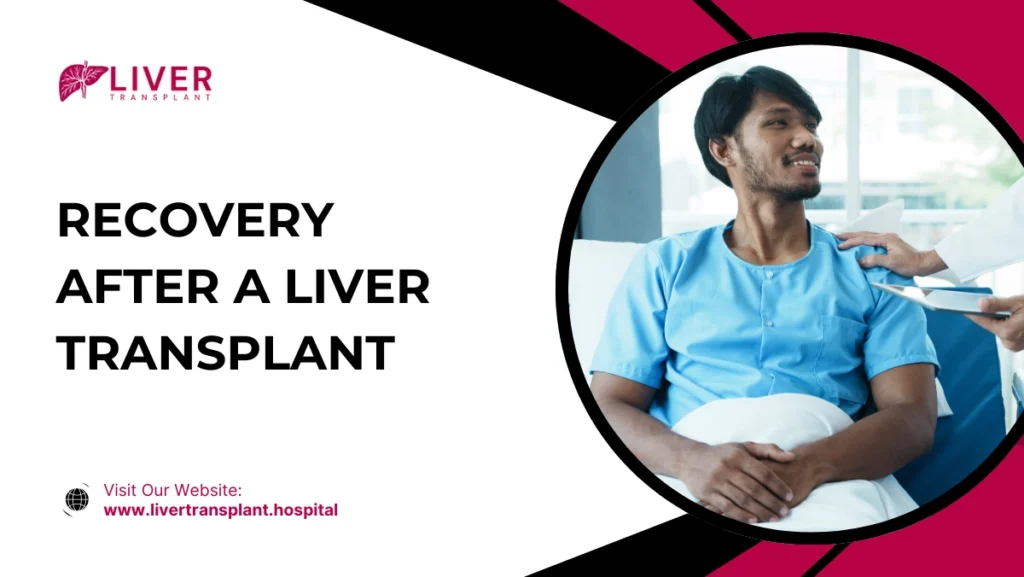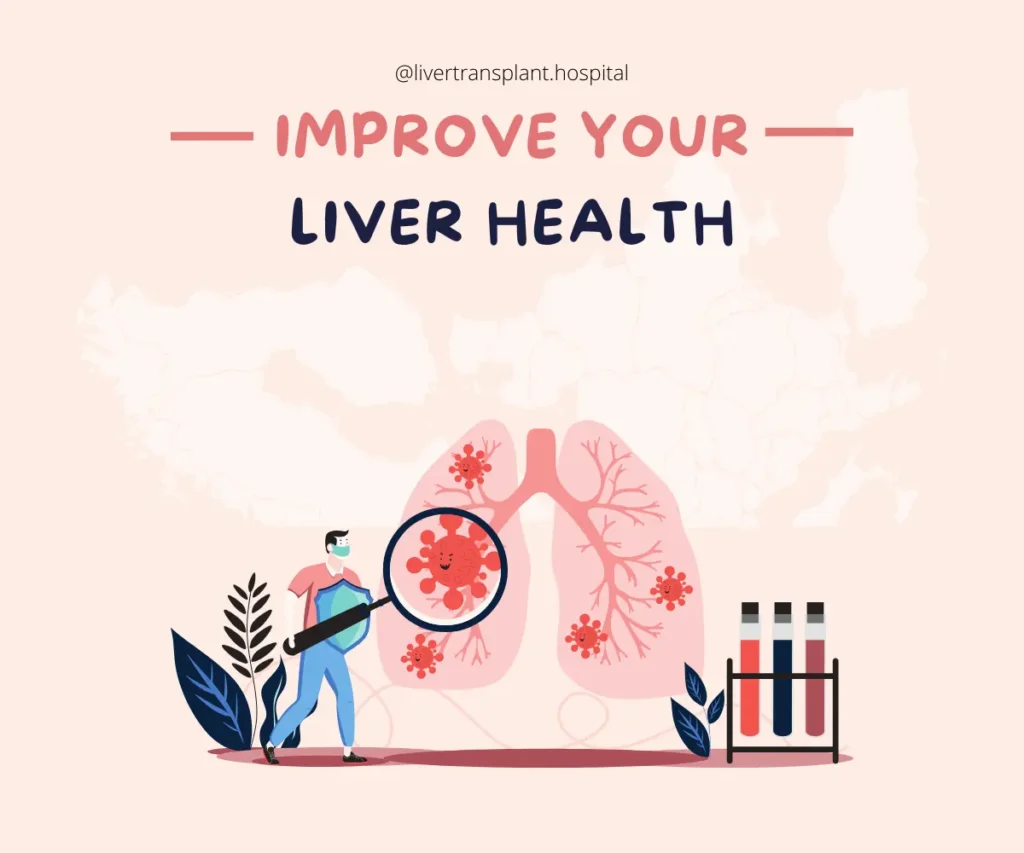
Best Foods for Liver Health
The liver is vital for filtering toxins and promoting health. Keeping it healthy can be as simple as adjusting your diet.

During your liver transplant recovery, following the right dietary guidelines is crucial to ensure your body adjusts well to the new liver and to prevent complications. A balanced diet can promote faster healing, reduce the risk of infections, and help manage your weight and overall health. It’s essential to stick to specific diet plans designed to meet your body's needs during this critical recovery period.
Here are some key dietary guidelines to follow:
By adhering to these dietary guidelines, you can enhance your overall health and ensure a smoother post-transplant care process, reducing potential risks and supporting long-term recovery.
During your liver transplant recovery, it’s essential to be mindful of what you eat to avoid infections and complications. Some foods can introduce harmful bacteria or affect how your body reacts to medications, making it crucial to follow dietary guidelines closely. Limiting or avoiding certain foods can support your new liver’s function and enhance your overall recovery.
Here are some foods you should avoid or limit:
Additionally, you should limit foods high in salt, as they can cause fluid retention and high blood pressure during your liver transplant recovery. Avoid alcohol entirely, as it can damage your new liver and complicate your recovery process.
By sticking to these diet plans and avoiding high-risk foods, you'll give your liver the best chance to function properly during your recovery.
After a liver transplant, recovery doesn’t stop when you leave the hospital. Long-term follow-up care is essential to ensure your new liver functions properly and to manage any potential complications. Regular checkups with your healthcare team help monitor your liver health and adjust medications or lifestyle choices as needed. This is a critical aspect of liver transplant recovery and helps ensure you stay on the right track.
Post transplant care include:
Maintaining a strong relationship with your healthcare team ensures that any signs of infection or liver rejection are caught early. Your long-term liver transplant recovery is also supported by ongoing guidance regarding your lifestyle, including dietary adjustments, physical activity recommendations, and hydration needs.
By committing to regular follow-up care, you reduce the risk of complications and improve the overall success of your liver transplant recovery.
Incorporating physical activity into your routine is an essential aspect of liver transplant recovery. While rest is important during the early stages of healing, gradually reintroducing exercise will help restore your strength and improve your overall health. Physical activity not only aids in regaining muscle tone but also promotes better circulation, boosts your mood, and improves heart and lung function, which are key in maintaining a healthy lifestyle post-transplant.
During your post-transplant care, follow these exercise guidelines:
It’s important to listen to your body and avoid overexertion, especially in the initial months of liver transplant recovery. Consulting your healthcare provider or a physiotherapist will ensure your activity plan aligns with your recovery needs.
Staying hydrated is one of the most important aspects of liver transplant recovery. Proper hydration supports overall healing, keeps your kidneys functioning properly, and ensures that your body maintains the right balance of electrolytes. Electrolytes like sodium, potassium, and magnesium are crucial for muscle function, heart rhythm, and maintaining fluid balance in your body, which becomes especially important during post-transplant care.
Here are some hydration tips and ways to maintain electrolyte balance during your recovery:
It's also important to monitor for signs of dehydration, such as dry mouth, fatigue, and dark-colored urine. Maintaining proper hydration and electrolyte balance is a key part of your diet plans during liver transplant recovery. Consult with your healthcare team to ensure your fluid intake and electrolyte levels are aligned with your specific recovery needs.
During your liver transplant recovery, working with a registered dietitian is crucial to help you create a tailored plan that fits your unique nutritional needs. Your body's requirements will change as you recover, and having expert guidance ensures you're following the right path. A dietitian specialized in post-transplant care can adjust your diet plans based on your medical history, preferences, and any restrictions due to medications or other health factors.
Here’s why consulting a dietitian is essential during liver transplant recovery:
Incorporating a dietitian into your post-transplant care ensures you’re making informed decisions about your nutrition, supporting long-term health, and giving your new liver the best chance to function well.
In India, liver transplants are regulated under the Transplantation of Human Organs and Tissues Act. Donors must be close relatives or altruistic donors approved by a government committee. The act ensures ethical organ donation and prevents illegal transplants. Approval and matching processes are mandatory, and priority is given based on medical urgency.
After a liver transplant, it’s essential to focus on a balanced diet rich in fruits, vegetables, lean proteins, and whole grains. Avoid raw or undercooked foods, alcohol, and excessive salt. Staying hydrated and consulting a dietitian for personalized plans is crucial for a successful recovery.
Post-transplant care involves regular checkups, a balanced diet, proper hydration, and avoiding infections. Patients need to follow prescribed medications, avoid certain foods like raw seafood and undercooked meats, and stay active through light physical activity. Monitoring by a medical team is essential.
Yes, exercise is encouraged but should be gradual and moderate. Start with light activities like walking and stretching. Always consult your doctor before starting any exercise plan to ensure it aligns with your recovery phase.
To protect your liver post-transplant, follow a healthy diet, avoid alcohol and raw foods, take prescribed medications, and attend all follow-up appointments. Staying hydrated and maintaining a healthy lifestyle will support your new liver’s function.
Medically reviewed by Reema Patel, MPA, PA-C — Written by Rebecca Joy Stanborough, MFA — Updated on August 31, 2022


The liver is vital for filtering toxins and promoting health. Keeping it healthy can be as simple as adjusting your diet.

The best liver treatment in Chennai offers advanced care with expert specialists, modern facilities, and personalized therapies.

The best diet for liver disease focuses on nourishing the liver with nutrient-rich foods while avoiding those that could cause strain. Incorporating leafy greens, cruciferous vegetables, antioxidant-rich fruits, healthy fats, and whole grains can support liver function, reduce inflammation, and aid detoxification.

Getting ready for liver transplant surgery is a life-altering process that requires both physical and